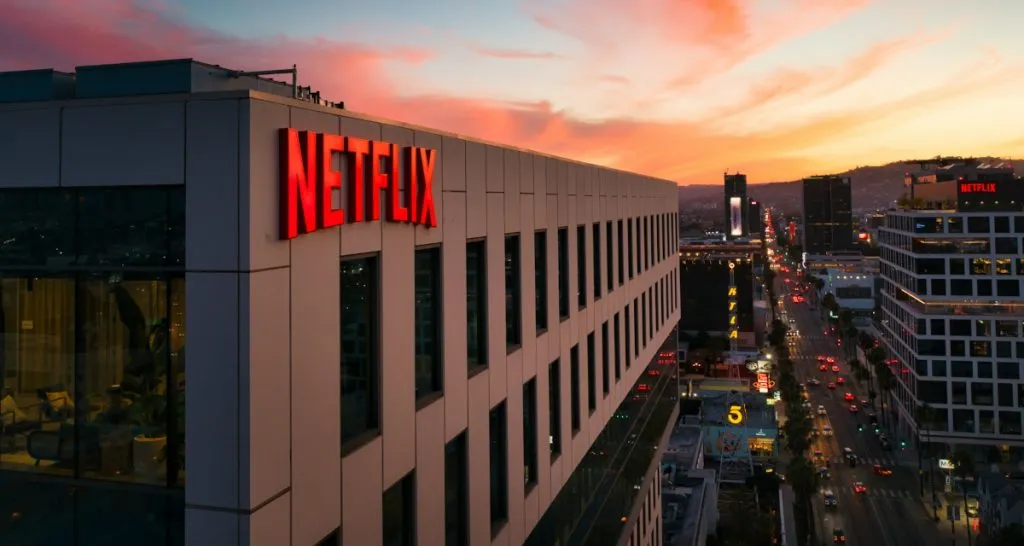Netflix has released a strong Q4 2024 earnings report and unveiled a new round of price increases. Photo Credit: Venti Views
Netflix is officially raising prices after reporting strong Q4 2024 earnings – prompting speculation about the pricing trajectory of direct competitors as well as music streaming platforms like Spotify.
The video-sharing giant posted its fourth-quarter and full-year financials after the market closed today. In that Q4 report, Netflix (NASDAQ: NFLX) pointed to $10.25 billion in revenue (up 16% YoY), $1.87 billion in net income, and nearly 302 million worldwide paid memberships (up 15.9% YoY).
Those seemingly positive results are certainly contributing to Netflix stock’s after-hours valuation spike; at the time of writing, NFLX was hovering around $1,000 per share, up over 14% from closing. Also fueling the share-price surge, however, is the service’s plan to once again elevate pricing.
Execs discussed the maneuver in comparative detail during Netflix’s Q4 earnings call. Keeping the focus on the top-level announcement and the States, the ad-supported tier’s monthly cost is set to rise from $6.99 to $7.99, with the ad-free Standard package changing from $15.49 to $17.99 and the 4K-equipped Premium plan jumping from $22.99 to $24.99.
While Netflix does, of course, operate adjacent to the core industry, the pricing boosts are important for the music space on multiple levels.
Most immediately, Netflix, which released a Sabrina Carpenter Christmas special last year and is set to add a Karol G biopic later in 2025, says one of its “priorities” for the current year is to continue developing “newer initiatives such as live programming and games.”
With the price increases presumably arriving at least in part because of this diversifying offering, it’ll be interesting to see exactly which live programming airs on the platform behind Beyoncé Bowl.
Bigger picture, Netflix’s aggressive pricing strategy is naturally spurring conversations about what’s in the cards for direct competitors and music streamers.
As many know, Spotify’s stateside prices (including $11.99 for Individual) are beginning to stretch away from Apple Music’s own monthly costs (among them $10.99 for the solo tier).
But as driven home by the latest streaming-share data – which is compiled in a one-stop database for DMN Pro subscribers – the trajectory of on-demand music platforms’ overall subscriber growth is noticeably different than that of their video counterparts.
That’s largely due to the overlapping libraries of Spotify, Apple Music, SoundCloud, Amazon Music, YouTube Music, Tidal, Deezer, Qobuz, and other on-demand players yet. While straight music exclusives remain (mostly) on ice, different limited-availability content could potentially set the stage for medium- and long-term pricing shifts.
Just in passing, Amazon Music’s “artist-centric” Universal Music pact encompasses “exclusive content” from the major’s acts. Apple Music is still affording subscribers access to Apple Music Classical (and a number of exclusive concerts) for no additional cost, and Spotify is leaning into both AI and video.
Running with the latter, Spotify head Daniel Ek last July confirmed a “Deluxe” tier that will carry a price tag closer to $20 per month. Nevertheless, it’s unclear when exactly the offering, reportedly set to feature AI tools, higher-definition audio, and more, will debut.

